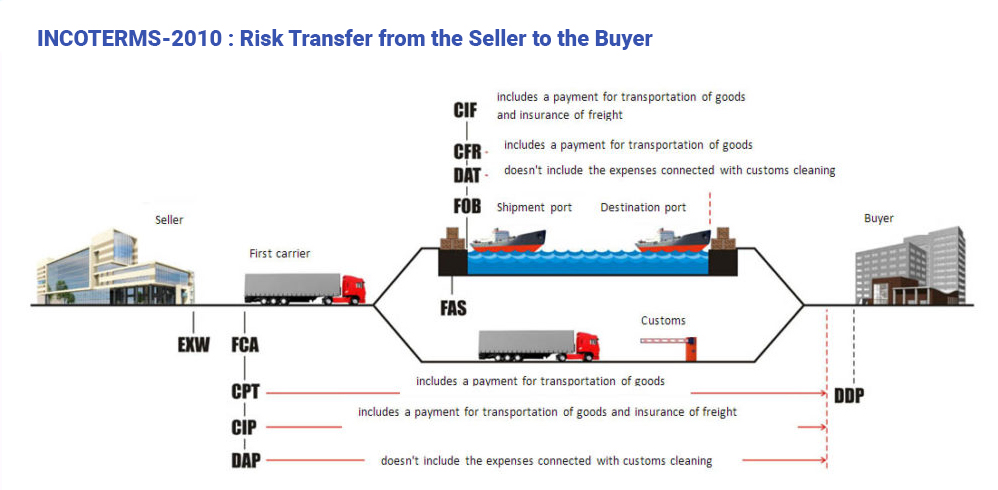1. INCOTERMS-2010 / INCOTERMS-2010:

2. CHRONOGRAM OF DELIVERY:
Based on our long experience in the import and export industry (international trade), we have long noticed most buyers/importers prefer to deal with the CIF delivery terms under the “second group of Incoterms 2010 – “C”. Reasons being that the CIF terms which means “cost, insurance and freight” – in this case seller is obliged to pay the expenses for insurance of the transported freights; which in whatsoever case there’s no delivery based on Sea, Land, Rail unforeseen disasters. The seller is mandatory to fully refund the buyer or replace the goods. [ADVANTAGE OF CIF DELIVERY TERMS]. To know more about Page Group claims and refunds policy, please click on PAGE REFUNDS POLICY.


